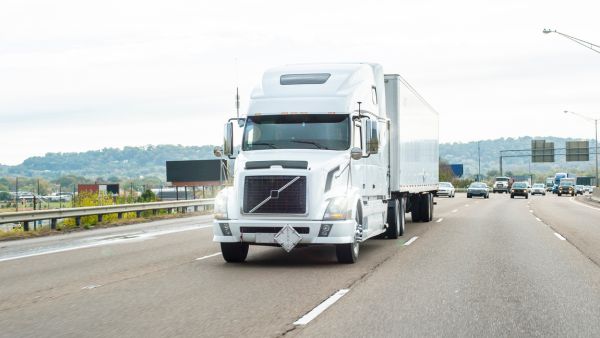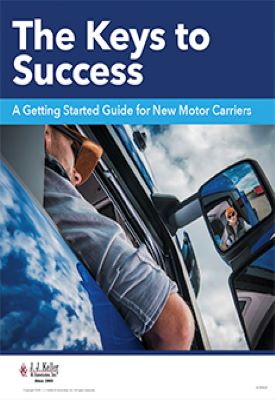This free, 14-page e-book gives you an easy-to-understand summary of the requirements you must comply with before hitting the road.
You'll learn... What type of business you run (interstate or intrastate, private or for-hire, CMV or non-CMV, etc.) What operating authority you need (USDOT number, MCS-150, UCR, etc.) What vehicle credentials you must have (CMV registration, IRP, IFTA, etc.) How your trucking company will be help accountable (new entrant safety audit, CSA, etc.)

